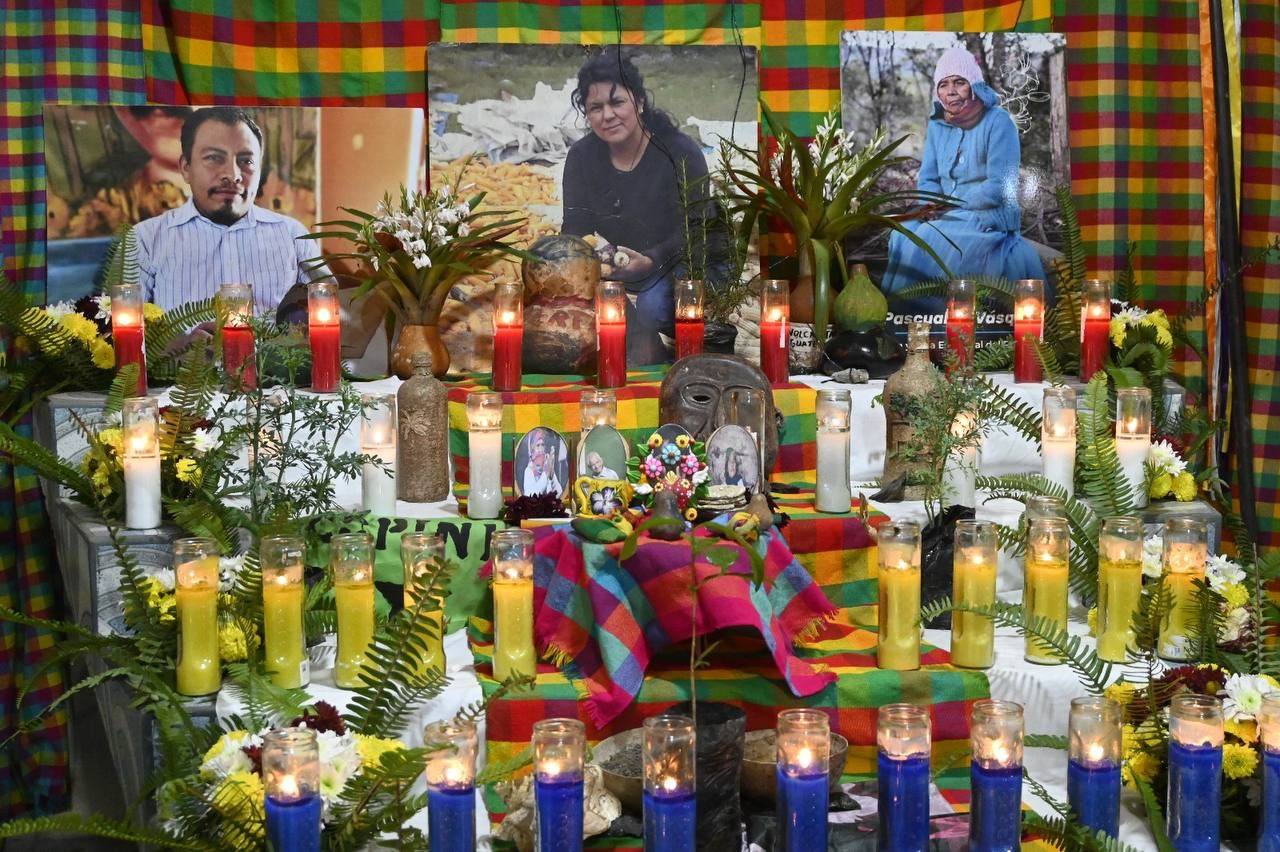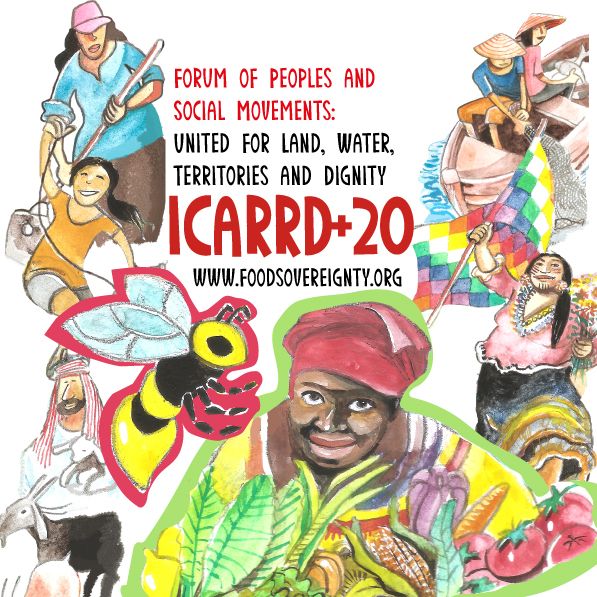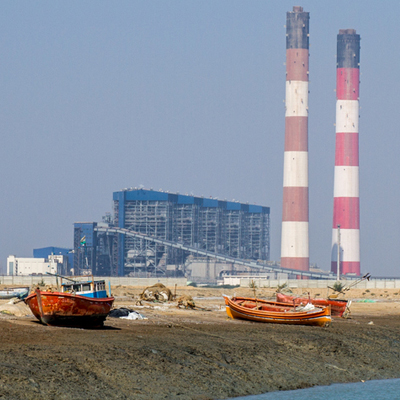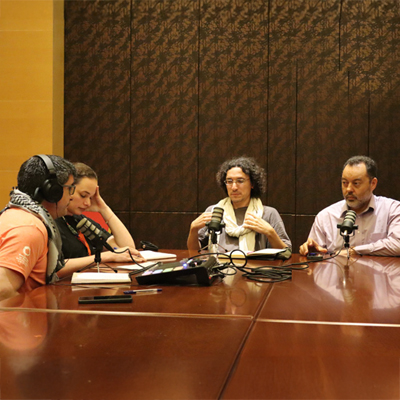Weaving as a political practice
Report from the meeting “Weaving our emancipatory proposals”; organised by the IFOS in Guatemala.
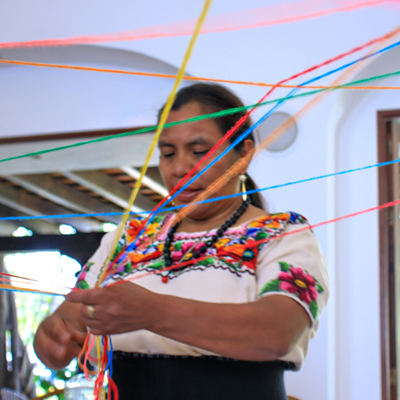 Vanessa Ordoñez
Vanessa Ordoñez
Weaving is by definition interlacing. Weaving takes patience and concentration, but is done in constant movement. Threads, yarns, strands and fibres are combined, crossed and mixed to form something new. When we look at something woven, we do not see threads joined together, one strand on top of another. We see the whole pattern, and the network that holds it together. And even more, we see what will be kept warm, at the end of the day, by what we just have created.
Women and gender-diverse people from the various members of the Continental Platform for Democracy and Against Neoliberalism came to Guatemala with the goal of interweaving their political proposals and histories. This text also intends to be a weaving, in this case of voices, that exists and moves forward thanks to the trust and tenderness built by grassroots feminism and the 2023 edition of the Berta Cáceres International Feminist Organising School (IFOS).
RWR interviewed Sandra Morán, coordinator of the IFOS, about the dialogue between training, organisation and political practice. “The IFOS is a tool we built together, that reflects the accumulated political thinking of the organisations and is being enriched. It is a living space (…) It is not a space far removed from our political practice. On the contrary, it is a space that comes from political practice and enriches it.”
The women from the Cuban Chapter of Social Movements have been actively involved in the IFOS since its creation. Georgina Alfonso underlined the importance of sustaining the processes over time and the relevance of communications: “The school is not only a process of political training, it is also a process of research, articulation, mobilisation and, above all, communication. The school has found new ways of communicating what it does and building a network of communicators in Latin America which is especially important in a world that prioritises communications over reflective thinking.”
The proposals of the different organisations have their differences, but the same substance: life must be at the centre. That is why Feminist Economy is at the basis of the political proposal that is being woven together. Cony Oviedo, from the World March of Women Paraguay, tells us about its scope.
“The World March of Women believes that grassroots feminist economy is a project of life that brings life to the centre. When we talk about life we are not only talking about women or people, we are talking about all the lives that exist on this planet and how we can centre them. We are thinking about taking care of nature, having more supportive and fairer relationships, where reproductive work is recognised, made visible and equally distributed between men and women,” said Oviedo.
The women of the Latin American Coordination of Rural Organisations (CLOC – La Via Campesina) arrived with the drive and force of peasant feminism and brought with them their historic struggle for life with Food Sovereignty as their banner. Guadalupe Esquivel spoke about the meaning of this concept: “Food Sovereignty is the right we have as peoples to choose our seeds, to choose our food, to protect our health and to be protectors of our seeds and ancestral knowledge.” Meanwhile, Wendy Cruz spoke about one of the fundamental pillars of Food Sovereignty, which is “to recognise the contribution made by peasant and Indigenous women in the entire food production chain, which is generally made invisible.”
Putting life at the centre also means denouncing and combating the models, logic and dynamics of death that are installed in the territories of the Global South, such as the current energy model. Mercedes Gould from Friends of the Earth Latin America and the Caribbean (ATALC) presented the proposal for a Just, Feminist and Grassroots Energy Transition, a project that was developed together with the Trade Union Confederation of the Americas (TUCA).
“The current energy system is one of the major drivers of the socio-economic and environmental crises we are experiencing, and in order to change it we not only have to think about alternative energies, but also about processes that are anti-capitalist, anti-colonial, anti-racist and anti-patriarchal,” said Gould.
Along the same lines, the Latin American Movement of People Affected by Dams (MAR) is building energy alternatives for life. María de los Ángeles Pérez Hernández told us that MAR is expanding its political subject to include communities affected not only by dams, but also by the privatisation of water and energy, the climate crisis and socio-environmental crimes. In addition, she explained the proposals of her organisation in more detail.
MAR’s emancipatory proposal consists of a “grassroots, just and solidarity-based energy model. “As the activist describes, “an energy model that produces energy for the people (…), rethinking how these energies are distributed and consumed, prioritising the value of use over the value of the market, in order to decommodify life.”
Nadia Dos Santos from TUCA added to these ideas by emphasising the work axis and the promotion of feminism in the trade union world. Dos Santos said that in her organisation they work every day toward the “strengthening and transformation of trade unions,” to achieve “more participation of women in spaces of discussion and dialogue, with gender balance in executive committees and a greater gender perspective in the trade union agenda.”
Meanwhile, Flor de Liz Feijoo is a member of the Textile and Clothing Trade Union of Uruguay and is the secretary for gender, equality and diversity of her country’s workers’ union, the PIT CNT. She came to this meeting to weave together class and labour feminism, and she told us: “We women workers are feminists, we fight for women’s rights permanently, and we understand that our place, the place of activism, is our class and we defend the interests of all workers.”
Real World Radio also interviewed Martha Flores, from Jubilee South Americas, who told us about the struggle against the operators of capital, the financial institutions that violate and directly affect life in the territories and regions. “Debt is not only about money, it is also about the social sphere, ecology, politics, history and ancestry. That’s why we talk about the dimensions of debt that are connected to the dimensions of life,” said Flores.
Unity and regional integration are fundamental to Alba Movimientos. Andrea Ross Berardi reflected on these and other concepts necessary for the feminist network. “Our intention is to conceive a regional project (…) and to democratise and build grassroots power, in institutional terms, but also to radicalise the participation of the people in making life decisions.”
Moreover, María Dolores Marroquín is a member of the collectives, La Cuerda and Voces de Mujeres, which are part of the World March of Women Guatemala. She talked about caring for the web of life, a proposal based on autonomy and interdependence.
“Here we are talking about the need to both question ourselves and build personal, collective, community, territorial and regional models in interdependence, understanding that we are part of a whole,” said Marroquín.
Maudy Ucelo Jiménez, from the Xinca Indigenous people, also participated in the meeting. She shared the basis of good living and its dialogue with grassroots and Indigenous feminism: “Buen Vivir or good living is the relationship between humanity and nature. It is respect for and value of nature (…) because we are part of the Earth, we come from it and we return to it, and it is because of it that we have our food, our livelihoods.”
To close this report, we spoke with Cindy Wiesner of the Grassroots Global Justice Alliance (GGJ) about feminism and grassroots building. The feminist political project is not about building a life for only women or for trans and non-binary people. It is a life for everyone.
“Feminist economy is an alternative to the current racist, homophobic, patriarchal, and colonial system and we have been proposing and collectivising feminist economy through our struggles and our work for decades. Part of this process and part of the commitment is that this is multiplied, that this is taken to the different movements and organisations and territories and that the women and men who have participated can adapt it to their contexts,” concluded Wiesner.
The IFOS does not stop, nor does grassroots feminism and its struggle. In August the school will have a new edition in Honduras, this time to train facilitators. And in May 2025, the school will travel to the African continent to hold its international edition in Kenya.



